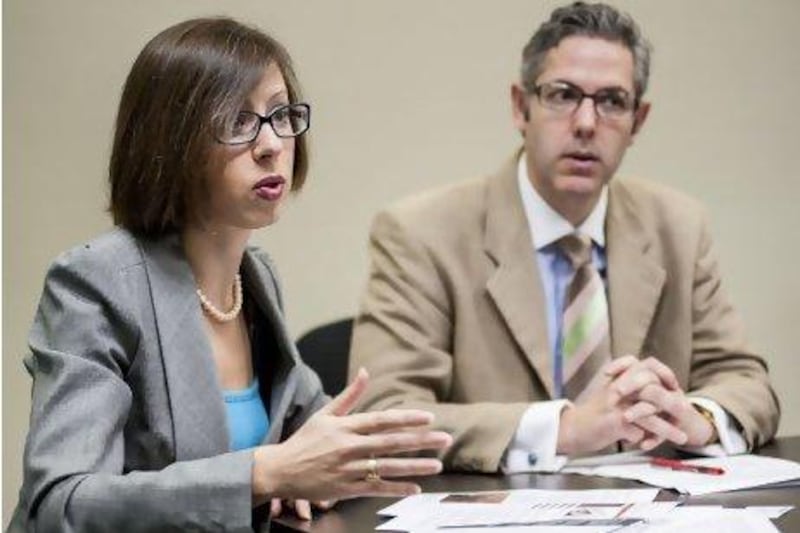SHARJAH // Family businesses are an integral part of the economy but bridging the generation gap is vital for staying successful, academics warn in new research.
The companies are the main source of job and wealth creation and essential if the UAE hopes to move away from a reliance on oil, say researchers at the American University of Sharjah.
Family businesses are becoming less reliant on nepotism thanks to younger generations' formal education in running companies.
But there are clashes between how things used to be done, and what the next generation wants.
Dr Virginia Bodolica, associate professor and co-researcher, said: "Many of our students are of that second generation, sons and daughters of people with family businesses, and their father expects them after graduation to take over the business. They tell us how often there are these clashes of understanding, the leadership style that makes that business successful and so on. The educational levels between these generations makes a big difference."
Many businesses were set up back in the 1950s or 1960s, by Emiratis with little or no formal education.
"Without this business education, these founders succeeded enormously before this second generation came in," Dr Bodolica said.
But successive generations are more educated about issues such as corporate governance.
"They know about ethics, processes and structures, that it isn't favouritism or nepotism that runs the business," Dr Bodolica said.
In the Middle East, about 90 per cent of businesses are family run. There are no definitive statistics for the UAE, but the percentage is believed to be similar.
Dr Martin Spraggon-Hernandez, co-researcher, said family businesses remain "the main source of job and wealth creation".
Some companies, such as Ahmed Seddiqi and Sons, were very transparent in chronicling their history.
Others were more hesitant to discuss their status as a family business, fearing they could be viewed as less professional or more informal.
Values have changed since the 1950s, said Dr Bodolica. "Business is changing to a more western direction. The values and the culture of running a business is very different to how it used to be."
Emiratis studying abroad bring back expertise, which has helped businesses become more transparent and less prone to nepotism, said Dr Spraggon-Hernandez. The more successful of the 200 companies where the pair conducted interviews had more procedures in place for transparency and succession.
Dr Spraggon-Hernandez said it was no longer assumed the eldest son would take the helm, but rather the most qualified member of the family would succeed as chief executive.
"They put criteria of evaluation like they would for anyone outside the family, within the family. They then all decide who is best," he said.
"Performance criteria will assess who will be most successful within the family. You still have to prove yourself, but it's at the level of the family, which is important for the longevity of the business.
"The elder brother may be jealous, but not like before because everyone knows who is the right person, which reduces that family tension."
Board members continue to be mostly male, although family businesses are a key way to involve women in the labour market.
The continuation of family businesses is vital for the diversification of the country's economy.
"It's going to help move away from oil-related industry," said Dr Spraggon-Hernandez. "If you start investing in local businesses, this is going to help the country understand other businesses beyond oil and this can go on for generations."
The research, 'Understanding family businesses in UAE through an evolutionary perspective', was given a grant of Dh1 million over three years from the National Research Foundation (NRF), but this was cut to just Dh200,000 for one year.
"We're struggling," said Dr Spraggon-Hernandez, who has been pursuing the project for three years.
"There is no data on this topic and it's of great importance to the UAE but we need support. This research can help secure the competitiveness of the UAE in the long run."
Dr Ahmed Alosi, research programme manager at the NRF, said the organisation was trying to help find new donors. "In six or seven weeks we're trying to invite members of the business community to meet them," he said.






